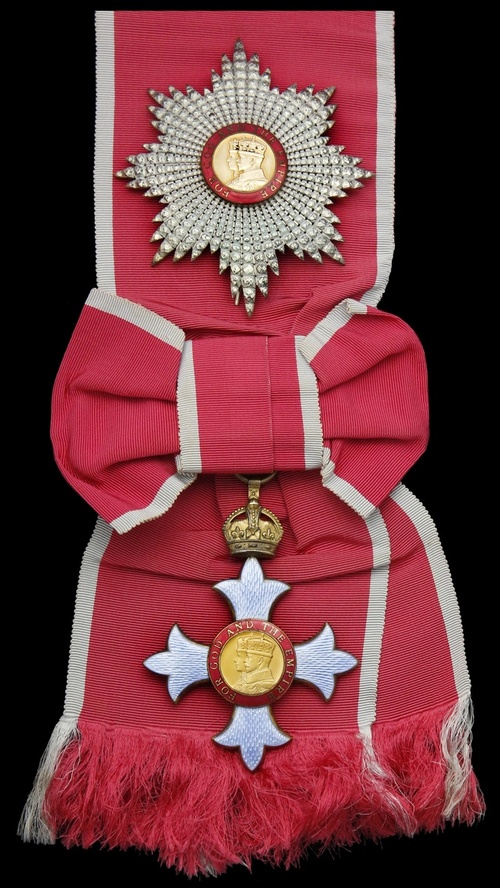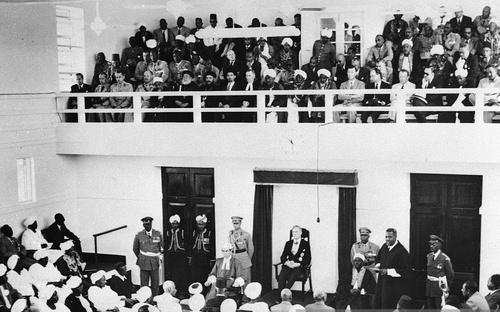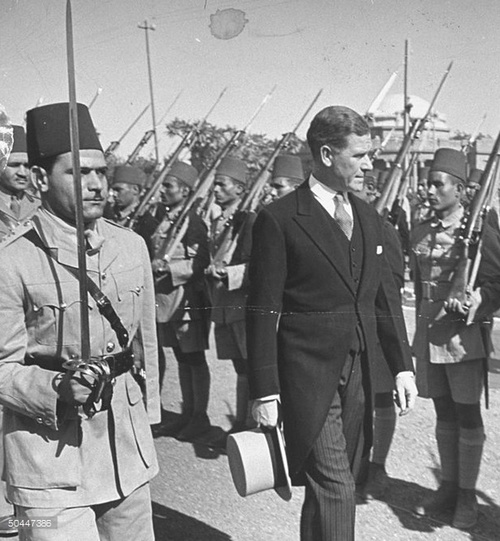Auction: 17002 - Orders, Decorations and Medals
Lot: 360
'More than 10,000 unarmed persons have been killed in cold blood. Most of my trusted friends would put the figure much higher. There were Chinese soldiers who threw down their arms or surrendered after being trapped; and civilians recklessly shot and bayoneted, often without the pretext that they were soldiers, including not a few women and children. Able German colleagues put the cases of rape at 20,000. I should say not less than 8,000 and it might be anywhere above that. On University property alone, including some of our staff families and the houses of Americans, I have details of more than 100 cases and assurance of some 300. You can scarcely imagine the anguish and terror. Girls as low as 11 and women as old as 53 have been raped on University property alone. On the Seminary Compound, 17 soldiers raped one woman successively in broad daylight. In fact, about one-third of the cases are in daytime.'
A chilling account of massacre and rape in Nanking in 1937-38, as described in a message smuggled out by Robert Howe, the British Embassy's Counsellor in Pekin.
An outstanding diplomat's G.B.E., K.C.M.G. group of ten awarded to Sir Robert Howe, who was responsible for smuggling out news of the horrors of the Nanking Massacre to the free world in 1937-38, in addition to gaining Winston Churchill's probable approbation for pre-empting a secret meeting between the Americans and Haile Selassie in 1945: in these timely interventions at least, Sir Robert perhaps bucked the trend that states a wise diplomat thinks things through - carefully - twice - and then says nothing
Diplomacy aside, Sir Robert had earlier lent gallant service as a subaltern in the Royal Dublin Fusiliers in Serbia - indeed he took a gunshot wound to his chest in facing off a company of Bulgars at bayonet point in December 1915. Having then endured nearly three years in captivity, he was gazetted for a brace of 'mentions' in January 1920, distinctions that likely recognised gallant deeds both as infantryman and prisoner: either way Sir Robert didn't seem much bothered and it took him until 1927 to claim the relevant emblems and medals
The Most Excellent Order of the British Empire, G.B.E. (Civil) 2nd type set of insignia, comprising sash badge, silver-gilt and enamel, and breast star, silver, with silver-gilt and enamel centre, in Garrard & Co. case of issue, with full sash riband; The Most Distinguished Order of St. Michael and St. George, K.C.M.G. set of insignia, comprising neck badge, silver-gilt and enamel, and breast star, with silver-gilt, gold and enamel centre, in its Garrard & Co., case of issue; 1914-15 Star (2 Lieut. R. G. Howe, R. Dub. Fus.); British War and Victory Medals, M.I.D. oak leaf (Lieut. R. G. Howe); Jubilee 1935; Coronation 1937; Coronation 1953, mounted as worn where applicable, red enamel loss to upper ray on K.C.M.G. star, otherwise very fine or better (10)
G.B.E. London Gazette 9 June 1949.
K.C.M.G. London Gazette 1 January 1947.
Robert George Howe was born in Derby in September 1893 and was educated at Derby School and St. Catherine's College, Cambridge.
Gallant subaltern - bayonets and Bulgars
Commissioned 2nd Lieutenant in the Sherwood Foresters in November 1914, he was attached to the 6th Battalion, Royal Dublin Fusiliers and saw brief action in Gallipoli before being embarked for Serbia. It was here, during the Allied withdrawal in December 1915, that he was wounded and taken prisoner. His P.O.W's debrief takes up the story:
'On 8 December 1915, during the retirement of the 10th Division I was with 'C' Company of the 6th Royal Dublin Fusiliers, who, with 'A' Company, were sent forward to occupy some stone sangars on Kevis Ridge and oppose the Bulgarian advance. We took up our position at 0600 hours, 'C' Company being on the right of 'A'. We were subjected to heavy artillery fire from 0700 hours until 1400 hours. At 0900 hours I was ordered by my Company Commander, Lieutenant Martin, to reinforce 'A' Company with my platoon. Owing to the open ground which had to be travelled and the intense machine-gun fire, I lost every man except my Sergeant.
I proceeded along the front of 'A' Company until I found 2nd Lieutenant Moloney, who was the only officer with this Company. I placed myself under his orders and assisted him in his duties rallying the men and keeping touch between the scattered sangars. About 1400 hours the enemy artillery ceased and the Bulgarian infantry who were occupying the village and a line of stone walls about 150 yards away to our front prepared to charge, so that the order was given to our men to fix bayonets. Instead, however, we were charged from the right flank rear, by about a Company of Bulgarians who had got in behind and who charged within 10 yards until stopped by their own frontal fire. As we then only numbered 8 men, including wounded, we were compelled to surrender. In this charge I was wounded although capture was inevitable.'
Howe's wound was of a serious nature - a bullet exiting in line with his sixth rib - and he was treated in a number of field hospitals before being transported into captivity in Bulgaria.
Repatriated in November 1918, he dutifully completed - in common with thousands of other returning P.O.Ws - an official debrief into the circumstances of his capture. Perhaps fellow Royal Dublin Fusiliers submitted evidence of his earlier courage in the action at Kevis Ridge at this time, possibly accounts of bravery in captivity, too? Either way, he was twice mentioned in despatches in the same London Gazette of January 1920.
Diplomat
Howe commenced his career as a diplomat with an appointment as Third Secretary in Copenhagen in 1920. He was quickly raised to Second Secretary. A tour of duty having ensued in Belgrade in 1922-24, he was embarked for the more glamourous surroundings of Rio de Janiero in 1924, where he was elevated to First Secretary. By the mid-1930s, and following another posting as First Secretary - to Bucharest - he was biding his time at the Foreign Office in London.
Nanking
Then in 1935 he was appointed Counsellor to the British Embassy in Pekin, the commencement of a particularly challenging - and harrowing - tour of duty on account of the Second Sino-Japanese War.
Top of the list of horrors that embraced Howe's time in China was the Nanking Massacre, an episode of mass murder and mass rape committed by Japanese troops against the residents of the then capital of the Chinese Government. The massacre occurred over a period of six weeks starting in mid-December 1937, the day that the city was captured.
The last British diplomats and citizens to leave Nanking departed the ill-fated city on 8 December 1937. But at Howe's bidding - on account of Britain having Consulates nearby in the west of China - a handful of staff remained in Shanghai. Here, then, survived a link to the outside world, by means of messages smuggled by gunboat to the port, and thence, by confidential diplomatic bag. As news of mass murder and mass rape rapidly grew in volume, Howe became a principal agent in the traffic of such smuggled reports. One such, written by Professor M. S. Bates, who taught at the University of Nanking, is quoted above: Howe ensured it - and others - reached the wider world.
Since most Japanese military records on the killings were kept secret or destroyed shortly after the surrender of Japan in 1945, historians have not been able to accurately estimate the death toll of the massacre. The International Military Tribunal for the Far East in Tokyo estimated in 1946 that over 200,000 Chinese were killed in the incident. China's official estimate is more than 300,000 dead based on the evaluation of the Nanking War Crimes Tribunal in 1947.
Howe, who was awarded the C.M.G. (London Gazette 11 May 1937, refers), was next posted to Riga, where he served as Counsellor 1940-41. This, too, was a challenging assignment, Latvia having been recently annexed by the Soviets. Aside from Germany, no Western nation recognised the annexation as legitimate de jure. Soviet intentions became quickly apparent in 1940 - known to Latvians as the 'Year of Terror' - when executions and deportations became commonplace.
Out of Africa
Howe must have been relieved to commence his next posting in the sunnier climes of Africa, when he was appointed British Minister at Addis Ababa, following Haile Selassie's reinstatement in May 1941.
He was similarly employed at the time of the Great Bitter Lake Meeting between Haile Selassie and Roosevelt in February 1945. As explained by T. M. Vestal in The Lion of Judah in the New World, knowledge of that secret meeting was garnered under unusual circumstances:
'Getting the Emperor to the rendezvous turned out to be a comedy of manners. A U.S. Air Force DC-3 was sent to Addis Ababa to fly Haile Selassie to Cairo - unbeknown to the Emperor's British handlers. The noise of the plane's 5.00 a.m. take-off awakened Robert Howe, the British Minister in Addis Ababa, whose permission was supposed to be granted for such a departure.
While grumbling about American secrecy, Howe hurriedly cabled news of the Bitter Lake meeting to Churchill, who, not to be outdone by Roosevelt, flew from Athens to meet Haile Selassie before he left Cairo.'
Having picked-up his 'Kindly Call Me God' for subsequent services as Under-Secretary of State in the Foreign Office in 1945-47, Howe returned to Africa as Governor-General of Sudan in the latter year: it was yet another challenging appointment, the country being beset by protests and riots - the British Chief of Police being among those killed.
Notwithstanding such troublesome times, Howe set about the task in hand with strong leadership and no small of degree of diplomacy, and in January 1954 he opened the first Sudanese Parliament. He had, meanwhile, been appointed G.B.E.
As a consequence of his extended service in Sudan, Howe forfeited his right to retire at pensionable age. This led to a special hearing in the House of Lords, a hearing at which the gathered ranks of the peerage were reminded of the diplomat's sterling service and of 'the real depths of affection and trust which were exhibited at the time of his farewell.'
Postscript
Sir Robert retired to Lostwithiel, Cornwall, where he became Mayor.
He died in June 1981, but not before being caused further vexation on pension matters. In January 1976, and clearly not impressed by his frozen annual Great War wounds pension of £20, he wrote - in not very diplomatic terms - to the Director-General of Defence Accounts:
'In your letter you state that a "wound pension is not increasable."
This dusty answer I have consigned to the rubbish bin and I now request that you will inform me immediately why this pension has not been increased, as a matter of legal right, under the 1971 Pensions Increase Act, like every other Civil and Service pension.
Failing a satisfactory reply I shall take up the matter in Parliament.'
Subject to 20% VAT on Buyer’s Premium. For more information please view Terms and Conditions for Buyers.
Sold for
£4,000









